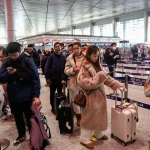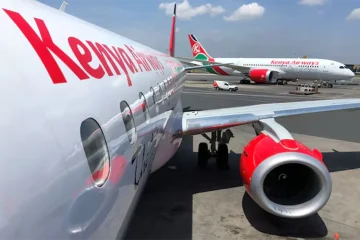BARRIER-FREE travel in Africa has received fresh impetus after Kenya vowed to abolish visa requirements for all Africans by 2023.
President William Ruto, championing the African Continental Free Trade Area Agreement (AfCFTA), asserted that visa barriers hold Africans back.
“By the end of this year, no African will be required to have a visa to come to Kenya,” he said.
Kenya, a part of the East African Community (EAC), has already implemented a common market protocol that allows free movement of goods, services, capital and people among EAC members.
By extending visa-free access to all African countries, Kenya hopes to attract more visitors, investors and entrepreneurs from across the continent, and to foster greater cultural and political ties.
There is a growing push to liberalise travel on the continent led by the African Union (AU), although progress has been slow.
In 2019, Nigeria announced plans to open up its borders to all African nationals but has not followed through with the pledge. Nigerian business magnate Aliko Dangote touted seamless mobility for Africans as a panacea for the sluggish adoption of the fledgling AfCFTA, in July this year.
“I think what African countries need to do is to give Africans visas on arrival that will facilitate trade,” he said.
His sentiments came as many of Africa’s smaller states are liberalising travel requirements, indicating a positive trend towards more open travel policies on the continent.
In December 2022, the African Visa Openness Index (AVOI) revealed a marked growth in open travel policies on the continent.
AVOI figures show travel within the continent became easier in 2022, with an even split between visa-free travel and issuance of entry permits on arrival.
In the past year alone, 10 countries on the continent have improved their visa openness score, allowing more travellers to enter African countries without restrictions.
Benin, The Gambia, and Seychelles now offer visa-free entry to Africans from all other countries, while twenty-four African states now offer an eVisa. 36 others have improved or maintained their Visa Openness Index score since 2016.
42 African countries now offer visa-free travel to nationals of at least five other African countries.
Marie-Laure Akin-Olugbade, Acting Vice President, Regional Development, Integration and Business Delivery African Development Bank (AfDB) notes that Africa has made great strides towards returning to pre-pandemic normality in 2021–2022.
“The vast majority of countries eased restrictions on movement. Industries that bore the brunt of the pandemic — tourism, hospitality, and others — are rebounding, and travel has surged, both within Africa and around the world. The increase in travel is driven in large part by pent-up personal demand, but also by the realisation that many businesses depend on human movement, and that investment thrives on it,” she stated in response to the report.
The rise in visa-free travel and eVisa availability is seen as a promising development for Africans who have historically faced significant barriers to travel within the continent.
According to African Union Commission Deputy Chairperson Monique Nsanzabaganwa, the links between free movement and the development of regional value chains, investment, and trade in services are clear.
“There is greater recognition that human mobility is key to Africa’s integration efforts,” she said.













